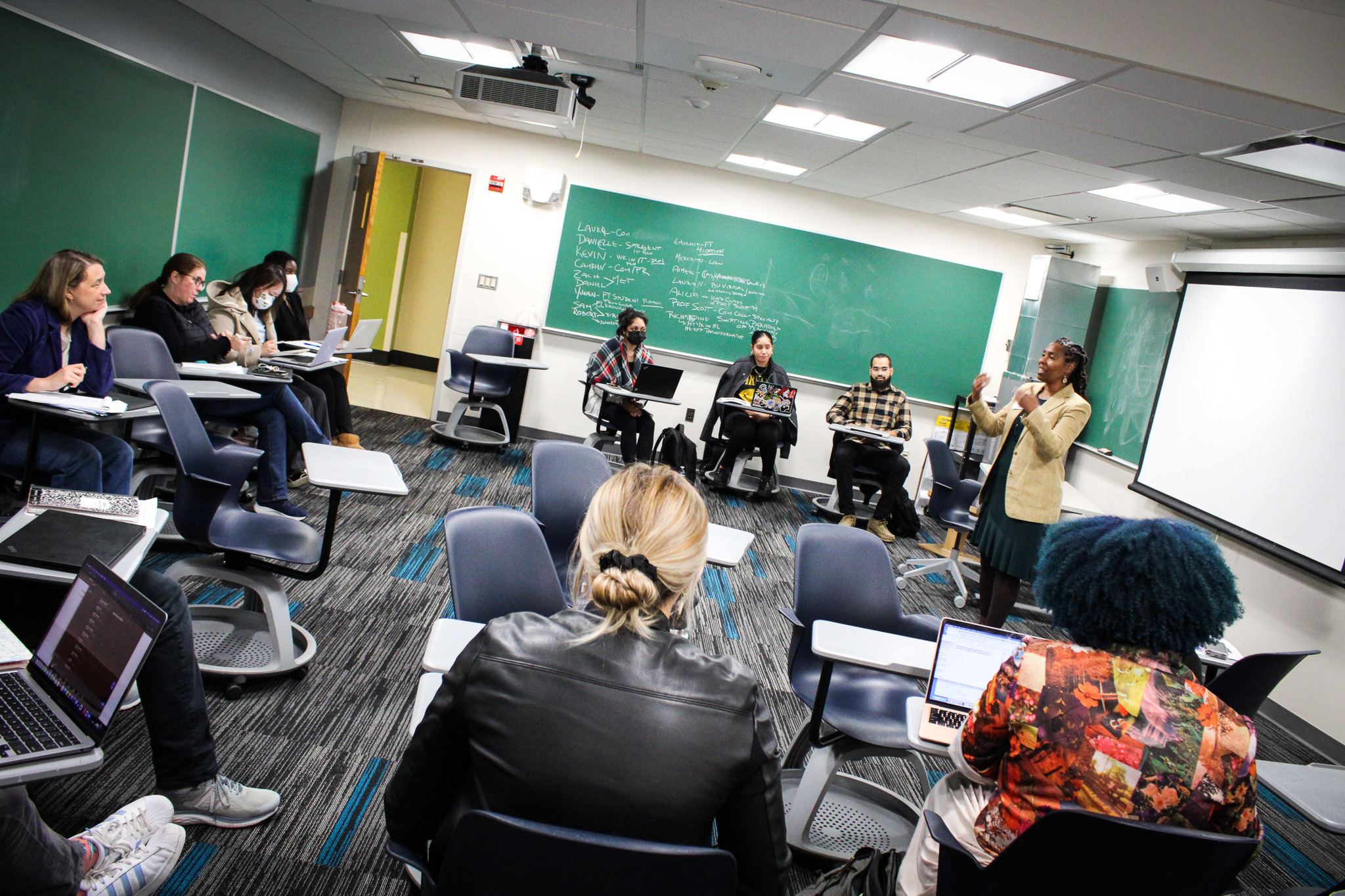3 Benefits of a Master’s Degree in Higher Education Administration

Photo by Christina McDonnell
3 Benefits of a Master’s Degree in Higher Education Administration
Colleges and universities can’t run smoothly without well-trained administrators such as financial aid directors, registrars, academic and career advisors, or deans of students. If you’re interested in becoming a higher education administrator, or if you’re already in the field and want to advance in your career, but you’re not sure what your next step should be, a master’s degree in higher education administration (HEA) may be right for you.
BU Wheelock offers a Master of Education (EdM) in Educational Leadership & Policy Studies with a concentration in Higher Education Administration. Available online or in person, this degree program offers students the opportunity to study with a diverse faculty whose administrative experience ranges from student affairs to public policy. Here are three benefits to getting a master’s degree in HEA.
1. Prepare to work in a variety of higher education roles
Higher education administration programs prepare deans of students, accessibility coordinators, academic and career advisors, and other higher educational professionals to support students, build relationships with faculty and other staff members, and ensure the smooth operation of colleges and universities. A degree in HEA can also benefit other administrators, such as Title IX coordinators, registrars, and financial aid directors. Learning about the inner workings of colleges and universities can help education researchers in their careers, too.
2. Hone your skills as a leader, communicator, and thinker
A degree program in HEA helps students develop skills in leadership, communication, and critical thinking that will serve them well throughout their careers. Students can gain these skills through their projects and interactions with others in the classroom.
Higher education administration students learn to solve problems and gain the ability to pivot, make informed decisions quickly, and build consensus.
What’s more, students also learn to overcome perfectionism and analysis paralysis to stay the course and execute plans without being held up—an essential skill in the ever-changing field of higher education. They will learn to solve problems and gain the ability to pivot, make informed decisions quickly, and build consensus.
3. Learn from faculty who have relevant experiences and diverse backgrounds
Students in the BU Wheelock HEA program study with faculty who have practical experience as higher education administrators.
Our HEA faculty are a diverse group of instructors whose professional experience is equally varied. Mary Churchill, the HEA program director, as a “high-level systems thinker” who works closely with policymakers. Raul Fernandez, a senior lecturer, specializes in equity, diversity, and inclusion. Lisa Ijiri, a clinical professor, serves on the New England Commission of Higher Education, a regional board of accreditation. Meanwhile, Jerry Whitmore, Jr., a clinical professor, has extensive experience in student affairs.
Learn more
For more information about the master’s degree in higher education administration at BU Wheelock, visit the EdM in Higher Education Administration.